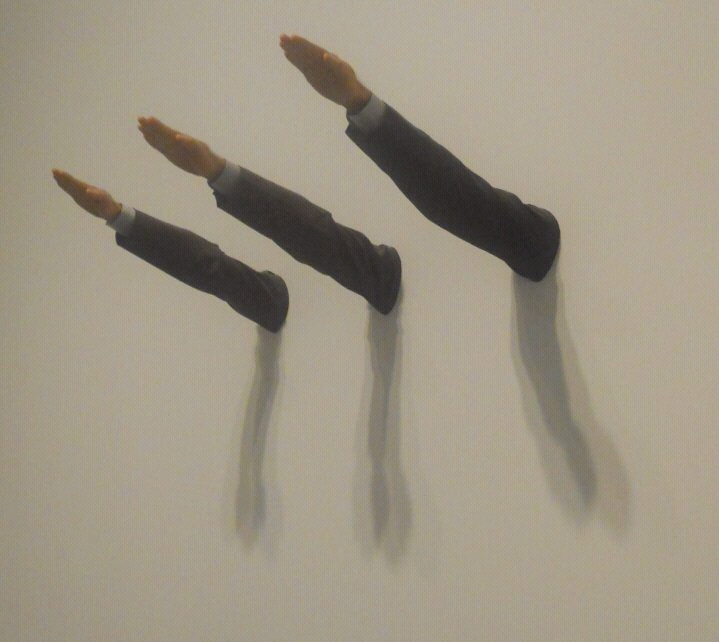
If you want a picture of the future, imagine a boot stamping on a human face – forever.
George Orwell
Are there any movements currently in power in Europe, or on their way to power, that can be called fascist? And if so, can those who support these movements also be called fascists? Objectively, in terms of actual practices and discourses, and subjectively, in terms of beliefs and agendas, these are open questions.
None of the movements today often referred to as fascist openly identifies with the fascism of the past. But all have emerged from the fascist tradition. Their political programmes contain no racial laws; nonetheless, all are constructed around the figure of the radical Other.
It is difficult to speak of these movements as totalitarian, though all are situated within the pentagonal matrix of fascist totalitarianisms: subversion of democracy through legal means; racist nationalism; glorification of force; replacement of the rule of law and political pluralism with the pretence of these things; and systematic repression of opponents and dissenting voices.
There are good reasons, then, for leaving historical singularities intact and being wary of jumping to label the European far right as fascist. But such prudence may also come at great political cost: normalizing the resistible but apparently inexorable fascization of European societies, perhaps even societies worldwide, since the middle of the 1980s. For in practice, the term ‘fascism’ refers less to a historical reality than to a political position that in a democratic society cannot be tolerated. Removing this marker of infamy would mean removing from our democracies any limits or prohibitions.
If we cannot talk of fascism as such, we can at least talk of fascization and being fascisized, as we do of racialization and being racialized. Is the development of multiple fascism-like features almost everywhere in Europe over the last thirty years not a similarly complex, strategically ambiguous, and partly impersonal process?

‘Ave Maria’ by Maurizio Cattelan, Tate Modern 2010. Source: Wikimedia Commons
Fascization as process
Rather than fruitlessly debating whether today’s far right is fascist, considering fascization as a process has a number of benefits, especially for thinking about the reality of today’s political dangers.
First, seeing fascization in impersonal terms allows us to abandon the irresolvable dialectics of regime and people, ideology and consent, and top-down and bottom-up fascism more generally. The question becomes less about whether the ‘masses’ are fascist (or whether people are active supporters or protest voters), and more about the ways in which they might become fascist.
Second, by talking about fascisized people, rather than about pure, hardened fascists, we can abandon a morally accusatory position and take a more neutral view. Of course, the fact that our societies are becoming fascisized is morally unacceptable. In concrete terms, it means more injured bodies, more humiliated and rejected spirits, and more deaths that are harder and harder to euphemize away as ‘blunders’, ‘one of those things’, or ‘moments of madness’.
But any moral position is doomed to fail in the face of fascism, because the latter offers, even more than religious fanaticism does, the opportunity to have one’s cake and eat it: the defence of civilization that Freud perfectly summarized as ‘beauty, cleanliness, and order’, and at the same time the right to exterminate one’s objective enemies – that is to say, potentially, anyone.
Third, historical fascisms emerged through co-opting revolutionary forces, desires, and emotions that had until then had been mobilized in the name of class struggle. Could contemporary fascisms similarly expropriate today’s ‘progressive’ forces and feelings, in particular the struggles of minorities and environmental causes?
Probably not, since most contemporary fascisms do not exult the beauty of the race and the coming of a new human being, but defend, against the dominant norms of the day, the ordinary and unremarkable, people without any particular position or distinguishing features, in other words the ultimate figure of becoming-minor. Today we should speak not so much of national socialism as minoritarian nationalism.
Fourth and finally: speaking of fascization as process allows us to better understand the extreme flexibility of its contemporary forms: in France, the fascisized sometimes support women and LGBTQ+ people, while in Italy and Russia they see them as the main enemy; in France, the fascisized demand ‘national preference’ (putting citizens of their country first) but, like in Hungary and Italy, do not want to leave Europe; and almost everywhere, they are against the environmental movement, but at the same time present themselves as the true defenders of the earth, which ‘does not lie’, as Marshal Pétain claimed. Today’s fascisms are not so much totalitarian but pragmatic, articulating their hatred wherever they think it might pay off.
The avalanche of signifiers
Fascism is first and foremost a language. While authoritarianism is silent, and silences people, fascism speaks and writes, and makes people do the same. Fascization must then first be sought in the babble, the earliest pidgin, the inchoate speech that later spawns fascist language.
In his book Human Smoke, Nicholson Baker attempts to understand how the rise of European fascism could have happened in the Old World, assumed to be the home of civilization and delicacy. Baker points out the extreme continuity and proximity between the statements of the great democratic leaders and their fascist counterparts. Roosevelt, Churchill, Hitler and Mussolini all employed the same lexicon: that of unbridled revenge, going from public resentment to the appeal for extermination, in a world that hoped for final solutions in all areas of life.
Baker emphasizes the process of fascization that precedes or accompanies fascist ideologies and regimes. To become fascisized means accepting ‘exterminationist’ signifiers, in other words the symbolic and emotional continuity that connects a fleeting frustration and the final solution. Extermination (from the Latin ex terminus, ‘to drive beyond the boundaries’) is a particularly apt term for the jouissance of getting rid of a particular category of beings once and for all.
We are talking of the fascization of societies rather than their ‘brutalization’, as George Mosse would have it, because we are discussing the normalization not just of violence, heroism and sacrifice, but also the repetition ad nauseam of a single vocabulary of extermination. Mosse explains the brutalization of European societies by an initial brutalization of bodies during the First World War. But Baker draws our attention to the exactly opposite process: violence in the discourse of men who have never known the trenches. We are discussing fascisizing signifiers rather than a fascist language, a lingua tertii imperii (Klemperer). Baker is not interested in the newspeak imposed by a fascist state, but the idiolects dominant across the entire social field.
The impersonal, almost autonomous transformation of language is the key feature of fascization. It is changed by the environment, insofar as language is fascisized by being transmitted by media organizations led by powerful, already fascisized owners. The language of fascization is most akin to intermittent belching, a word cloud, what Barthes called ‘myths’ – that is to say, displaced and de-grammaticized signs. If we want to understand how our societies are being fascisized, we need to pay attention to the media, rumours, conversations overheard at work or on public transport. Social networks are a great tool for listening to the fascist babble of our time.
Fascisized bodies
But the essential power of fascisizing discourses lies less in what they are saying (what is signified) than in their signifiers. From its earliest beginnings, fascisazation has operated as a discourse without referents, created not for knowledge but enjoyment: people enjoy speaking and hearing about their hate for foreigners, migrants, Others. But the challenge is never to perceive the real effects of such jouissance. We may enjoy the unhappiness of the foreigners outside our windows who make our lives difficult, in reality or in our fantasies, but we do not want count the deaths in the Mediterranean, to see the nameless suffering in the many camps that surround Europe, to hear about the fates of those whom we have turned back or deported. Being fascisized means getting used to enjoying what one does not want to see.
We cannot understand historic fascism without considering it as a particular way of dealing with desire, simultaneously compensating for repressed desires and producing new, unfettered ones. ‘It was not by means of a metaphor, even a paternal metaphor, that Hitler was able to sexually arouse the fascists,’ observed Deleuze and Guattari. But this ‘voluptuous wave’ travelled ‘from the top to the bottom of their hierarchy’ and therefore had little or nothing to say about those at the bottom, who were gradually becoming fascist without desiring anything.
We cannot help but project onto the fascisized a contradictory avalanche of psycho-sociological fantasies that are neither completely false, nor completely true. These fantasies confound historians, functionalists above all, by showing that fascism spans all classes, all religious institutions, and all psychological types, without encompassing any of them in their entirety (resistance to fascism is also found everywhere). Those who are fascisized are above all ‘ordinary men’.
Fascism is a way of dealing with desire, relating both to an erotics and an aesthetics of the chief, the hero, strength, violence and energy. ‘Fascism is above all beauty,’ as Mussolini said. Fascization, on the other hand refers to a way of dealing with enjoyment, without idols, figure or form. The fascist body is a desiring body, eminently visible and imposing – a kind of Michelangelo-like Apollo, but with a bull neck, a brutish face and a stiff body. The fascisized body, on the other hand, is invisible, or at least hidden, a body that enjoys. Fascism is noisy, but fascization occurs in silence.
To enjoy means to let something both sweet and searing, exciting and horrible, slip into one’s body upon contact with a signifier of which one is not the author. This enjoyment does not care about meaning: one might disapprove of what is happening at the level of one’s conscience (migrants drowning in the Mediterranean, a young man being killed by the police) and derive pleasure from it, without even being aware of it.
Everyone finds flows of fascist jouissance sweeping through them, because these flows travel through bodies and no body is an island. To take a historical example: French writers during the Paris Commune. ‘I hold Flaubert and Goncourt responsible for the repression which followed the Commune because they did not write one line to prevent it,’ wrote Sartre.
Not only did they not write anything to prevent the Semaine sanglante (Bloody Week) of 1871, the trials, or the exiles, but they literally took pleasure in them: they dreamed of the crushing of the ‘Communards’, they insulted them, belittled them, dehumanized them, and celebrated their massacre. These were ordinary people, who were ordinarily concerned with the good of the people. Yet, on this occasion, they were swept along by a dark process of fascization.
Twenty years after the Semaine sanglante, Émile Zola, the realist, wrote:
It was the healthy portion of France, that which was endowed with common-sense and a well-balanced mind, the peasant portion, which had remained nearest to the soil, which was now suppressing the crazed, exasperated portion – that which the Empire had corrupted, which had been driven mad by enjoyment and senseless fancies; and it had been necessary that France should thus carve into her own flesh, thus mutilate herself, scarce knowing what she was doing. Yes, that bath of blood, of French blood, had been necessary; it was the abominable holocaust, the living sacrifice offered up amidst purifying fire. And now the Calvary was ascended, the most awful agonies had been reached, the crucified nation was expiating its sins and was about to be born again.
Flaubert, the cynic who held the bourgeois in contempt, also gave himself over to jouissance: ‘“Ah! God be thanked, the Prussians are there!” is the universal cry of the bourgeois. I put messieurs the workmen into the same pack, and would have them all thrust together into the river! Moreover they are on the way there, and then calm will return.’ And George Sand, the idealist and socialist, was hardly more commendable: ‘On the side of order, we are no less harsh, but the fury of the Communards is so terrifying that it sparks the fury of the law.’
Realists, cynics, and idealists all called for a bloodbath: let’s exterminate the lot of them! As well as (or despite) their fear, these writers felt the pleasure of extermination. This is what defines fascisizing jouissance: the pleasure of exterminating the weakest, the ‘sensation of trampling on an enemy who is helpless’ as O’Brien says to Winston in Orwell’s 1984.
Fascisized people do not derive pleasure simply from their strength, nor violence in and of itself, but the aberrant identity of strength and violence – a double jouissance, each side a mirror endlessly reflecting the other, because one can never be strong enough and therefore never be violent enough.
What is to be done?
To say that our societies are becoming fascisized is not to say that they are in danger of being overthrown. Fascism could be compared to earthquakes that destroy nations and civilizations in an instant: fasciszation is closer to ‘those weeds that will eventually cause the Alps to crumble’ (Nietzsche). If we push this hypothesis to the extreme, fascisized societies can exist without organized fascism, and less fascisized countries can have fascist regimes. At least two practical lessons then emerge.
If, faced with authentic fascists, there can be no legitimate discussion or compromise, the correct reaction when faced with those who are fascisized is more complex. Since it is less about people than about flows, it is essential to think in terms of sea walls, dams and cordons sanitaires. Electoral dams, but more importantly, dams in our language: never tolerating the lexicon of extermination. And equally, dams made of bodies. In the street, in the football stadiums, in Ukraine – it is vital that we fight the fascists. Here the antifascists are absolutely correct.
Nonetheless, it is likely that every sea wall will eventually give way. We therefore need to devote ourselves to draining the sources and sabotaging the channels. Or perhaps to have more confidence in life and in pleasure, until they become something other than fascist flows. Schreber’s paranoid delusions began as a process of fascization (antisemitic, misogynist, Pan-Germanist). But then he became a great Mongolian prince, was pierced by God’s rays, lost his organs, and became a woman. Deleuze and Guattari make the reasonable comment that delusion always ‘deludes’ the world, peoples, races and continents; and that it is sometimes wiser to go along with them rather than reproach them.
The antifascist fight cannot be a policing of signifiers, bodies and pleasure. Despite this, there are some kinds of pleasure that cannot be tolerated: hearing people say, ‘serves him right!’ after the killing of Nahel Merzouk; seeing the coprophilic frenzy of Russian troops in Ukraine, covering the floors of occupied homes with excrement as was once done in occupied Berlin.
The fight against fascization cannot be as simple as the fight against fascism, since it is also a fight against oneself, against those that we love, suddenly ensnared by a deathly signifier, and against that which we love the rest of the time (the body, pleasure). This perspective brings us to the second practical lesson: that of completely reversing the fascist Weltanschauung that thinks about politics as the distinction between friends and enemies, us and them, here and there.
If the notion of fascization is meaningful, it is in giving us something in common: we all have the potential to become fascisized and, at least in part, we all already have been. The concept of fascization allows for no more us and them; there is only us. It helps us to acknowledge that this ‘us’ is not doing very well, and offers the hope that it might be revived if everyone pitches in.
This does not mean tarring everyone with the same brush: we can still distinguish between people in a more or less fascisized society, because there will always be the dividing line of action, between those who struggle and those who submit or give up. But this is not a singular, univocal action. The fight against fascism and fascists is a fight to the death, which is only in earnest when we take up arms. But the fight against fascization is necessarily gentler, more multiform and less violent.
We always become somewhat fascisized when we fight against fascists, but we can only fight against those who are fascisized by de-fascisizing ourselves, for the good of all.

Published in cooperation with CAIRN International Edition, translated and edited by Cadenza Academic Translations.
Source link




